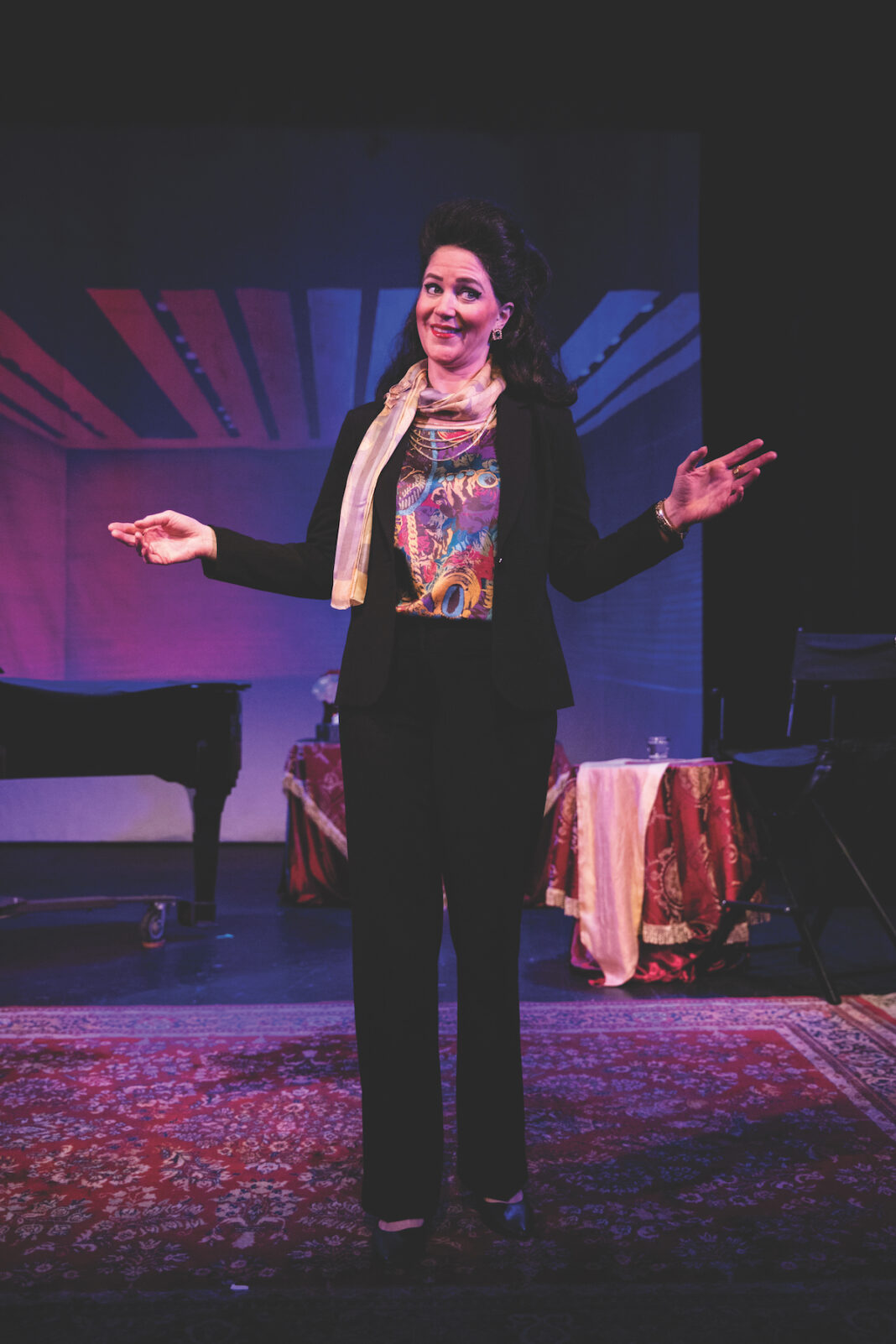The name Maria Callas means little these days to people unversed in the world of opera, but to those in the know the American-born Greek soprano will always be “La Divina.”
Callas passed away in 1977 at the age of 53. Memories of her might have faded completely from the stage but for playwright Terrence McNally’s Master Class, currently running on the Rotary Stage at the Sonoma Community Center. The Carl Jordan-directed production runs through Feb. 27.
A master class is a class given to students of a particular discipline—such as music—by an expert of that discipline. Callas taught a few of these at the Juilliard School in the early 1970s, where playwright McNally was apparently in attendance. Twenty-five years later, McNally’s fictional take on that experience opened on Broadway and won the Tony for Best Play.
Andrews Hall is turned into a rehearsal hall/classroom, and the audience into students, as Callas (Libby Oberlin) prepares to take on three singers. The grand dame enters and assures the audience that the evening is about the students and not about her.
Riiiiiiiight.
The first student, Sophie (Emily Evans), is cut off after a single note. A young, doltish Southern California-educated Tenor (Robert Dornaus) puts Callas off with his desire to be rich and famous. Sharon (Morgan Harrington) exits after Callas insults her dress, but returns and ends up giving Maria as good as she gets.
Callas is blunt, caustic, withering and unequivocal in her critiques of the students. They all have the ability and the talent, but what they all lack is the essence of truth required of great art. That truth is born of pain and sacrifice, and Callas delivers several interior monologues that speak to the pain she’s suffered and the sacrifices she’s made for her art.
Oberlin is first class in Master Class. Oberlin’s background in teaching was a definite asset in interpreting the role, particularly in a moment of incredulity when she discovers a student has failed to bring a pencil to class, though I’m not sure Callas’ method of tearing-down-to-build-stronger would fly in today’s world.
The students’ musical performances, when they were allowed to deliver them, were also first rate, as was the accompaniment of John Partridge.
Audiences with an interest in any art form will appreciate the passion Callas had for her work and the overall excellence put into this simply-staged production.









